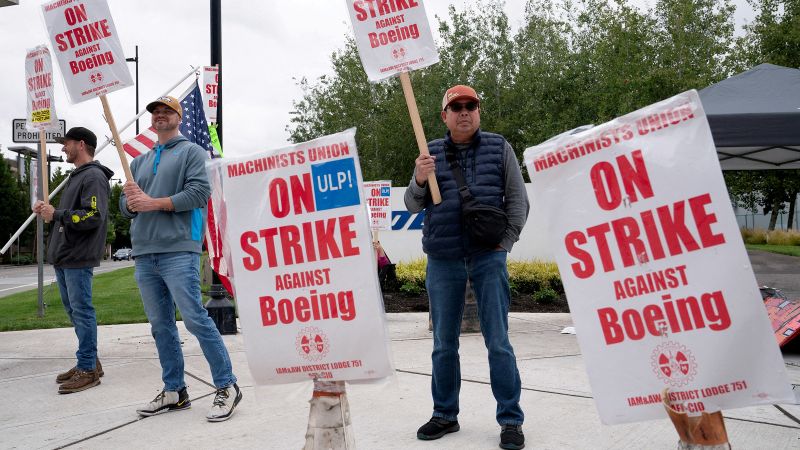Boeing and the union representing 33,000 striking employees have reached a deadlock in talks, with no new negotiations scheduled. The company’s CEO, Stephanie Pope, stated that the union’s demands were non-negotiable and excessive in order to maintain competitiveness. The strike, which began on September 13, has caused operations at Boeing to come to a standstill, costing the company an estimated $1 billion per month, according to credit analysts.
The rejected tentative agreement between the union and Boeing would have provided members with raises totaling 25% over four years. However, the union felt that the improved offer made by the company, including an immediate 12% raise and total raises of 30% over four years, was still not acceptable. The IAM believes that Boeing was unwilling to make significant concessions during negotiations, leading to the breakdown in talks. Despite this, both sides expressed a willingness to return to the bargaining table in the future.
The strike is not solely about wages, as union members are also frustrated about the loss of the traditional pension plan that Boeing had until a decade ago. Members reluctantly gave up the pension plan when the company threatened to move production to nonunion plants outside of Washington state. Boeing’s financial outlook has changed dramatically in recent years, with struggles stemming from two fatal crashes involving its 737 Max jet, resulting in substantial operating losses and a damaged reputation related to safety concerns.
Boeing has faced further challenges as it has agreed to plead guilty to federal charges of deceiving the FAA during the approval process for the 737 Max. Despite attempts to reach a compromise with the union, Boeing and the IAM remain at odds over the terms of the contract. The company maintains that it has made efforts to improve proposals, including increases in pay and retirement benefits. On the other hand, the union believes that Boeing has been inflexible in negotiations and has not been willing to revise its offer publicly released two weeks ago.
As the standoff continues, the true impact of the strike on Boeing’s operations and finances remains to be seen. Both sides are hopeful for a resolution but it is clear that significant differences must be addressed in order to reach a mutually acceptable agreement. The ensuing tension between Boeing and the IAM reflects broader challenges faced by the company in recent years, as it navigates a changing industry landscape and works to restore confidence in its products and operations.















